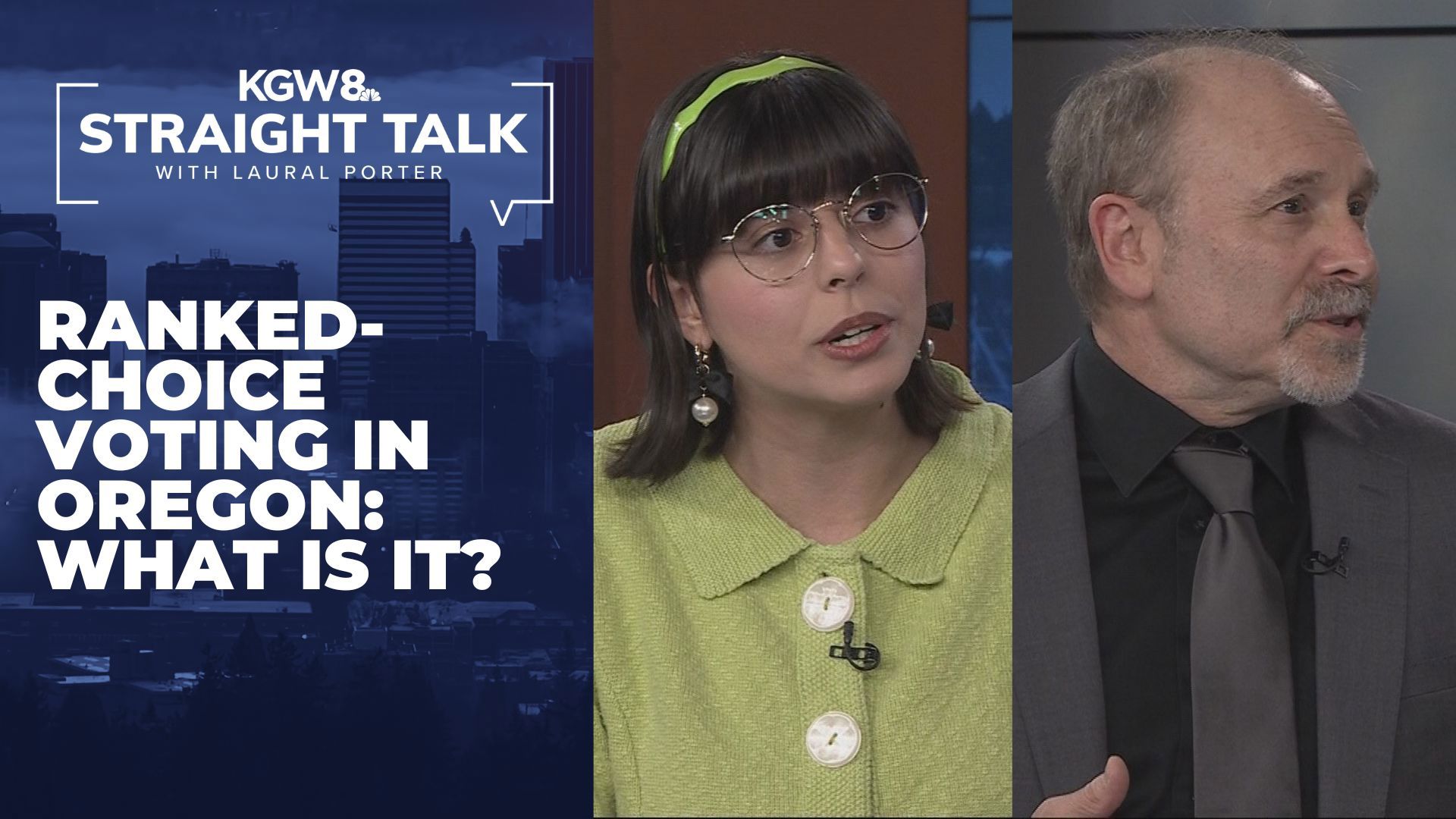PORTLAND, Ore. — In November, Portland voters will not only need to select a new 12-member city council, but they will also have the option to rank their choices in order of preference through ranked-choice voting.
It's a new system that largely came about as a more expansive way for voters to choose candidates and has largely been driven by dissatisfaction with the status quo both locally and nationally. Voters will hear the term rank-choice voting a lot between now and November, as opposition from political parties and partisan groups that fear losing power continue to push back on the measure.
Portland will get its test with the new system in November when deciding on the mayor and auditor races and the races for the new 12-person city council. At the same time, Oregon voters will decide in November whether the entire state should use ranked-choice voting for statewide and federal elections in the future.
In this episode of "Straight Talk," two ranked-choice voting experts in Oregon and nationally, Sol Mora and Blair Bobier, join as guests to discuss how it works and what are the advantages and disadvantages.
"People are pretty frustrated with government and elections," Mora said. "There's a lot of negative attack ads out there, campaigns are toxic and rank choice voting is a way to improve our elections, improve the political atmosphere. And I think it will give us hope for the future of our democracy, which is something we could really use right now."
How ranked-choice voting works
Voters can rank candidates in order of preference from one to six, if there's that many to choose from. Votes will then be calculated by how many each candidate receives.
"So, for example, as a voter, you could say this candidate really resonates with me," Bobier said. "I'm going to place them as my first choice. This other candidate also resonates with me. I will place them as my second choice. It is up to each voter how many of those candidates they would like to rank. And if there's only one candidate that is speaking to you, you can just rank that one candidate and not rank any of the others."
If ranked-choice voting succeeds in the November election, Oregon primary election would be eliminated, and the entire election would be shifted to November. Mora said the shift could take advantage of when voter turnout is typically highest. And with that, she added, there won't as many runoff elections due to how votes would be counted.
Pros and cons of ranked-choice voting
In areas that have already adopted ranked-choice voting, Mora said they are seeing more women, young people, first-time candidates and candidates of color deciding to run.
As for voters, Bobier said "they get to vote their conscience" by picking a first choice, a backup and more.
"It gives them more power with their ballot," he added. "It's really a way to be more expressive."
Those who oppose ranked-choice voting argue that it gives favor to more "fringe" candidates and disconnects voters from issues, but Bobier said it does the opposite.
"Ranked-choice voting is a majoritarian system," he added, "so you have to have broad based support; you have to have a majority to win."
Bobier argues that it's our current system where "fringe" candidates that may not have a lot of support can win due to vote splitting. He said a candidate can win a race with as much as 20% of the vote, which would not be possible with ranked-choice voting.
And since voters rank their candidates in order of preference, Bobier said issues will be more at the heart of elections.
"It's going to be issue-oriented because... candidates want to reach out to the supporters of their opponents," he added, "so, they don't want to trash that person. They want to say, 'Look, this is where we agree; we both support labor unions or we both support the environment or we both support renters' rights,' whatever it is, they're going to look for the commonality and not be divisive."
Watch the full interview to listen to the national debate surrounding ranked-choice voting, where it came from and how it could change U.S. politics. "Straight Talk" airs Saturday and Sunday at 6:30 p.m., and Monday at 7 p.m. "Straight Talk" is also available as a podcast.

